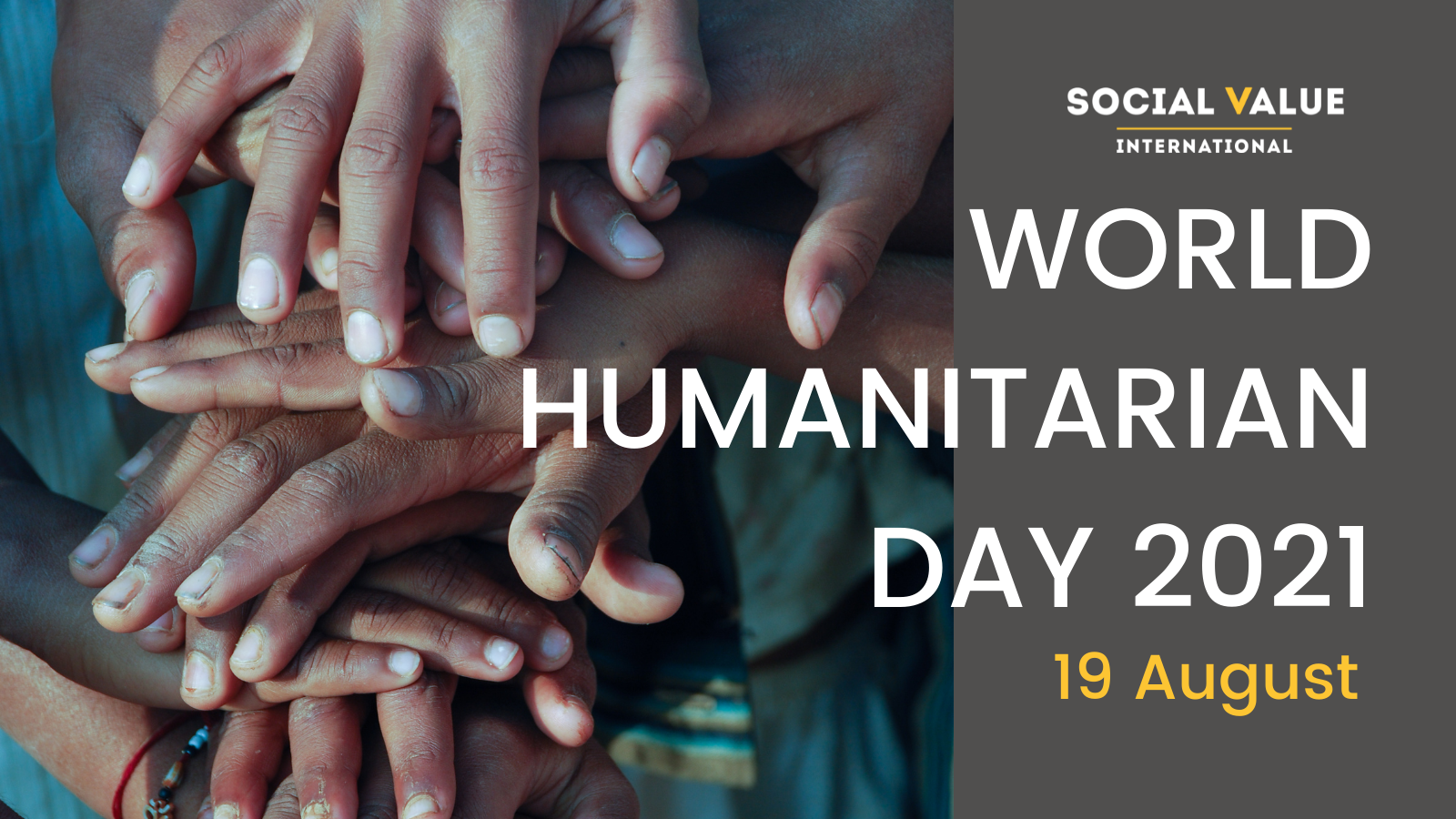World Humanitarian Day: Ensuring the Human Rights and Safety of Afghan People
The following blog was written by Lukia Nomikos.
World Humanitarian Day is commemorated every year on 19th August to pay tribute to aid workers who have risked their lives working for humanitarian causes. More than a day designated for recognising and appreciating humanitarian workers worldwide, World Humanitarian Day is also a rallying cry for support for people affected by crises around the globe. Tackling inequality in all its forms, achieving social justice, and maximising well-being for all are central to the social value movement and our work at Social Value International – this includes ensuring the human rights, dignity, and safety of especially those who are most vulnerable and marginalised within our societies.
We have all heard the harrowing news from Afghanistan, where the Taliban’s shockingly swift capture of one province after another culminated in the inconceivably premature fall of Kabul last Sunday. Almost 20 years after being ousted by a US-led military intervention in 2001, the Taliban have risen to power once again and there is a palpable sense of impending doom both in Afghanistan and globally, with many dreading the country’s plunge back into the darkness of its 1990s.
The Taliban resurgence has resulted in hundreds of thousands of people fleeing their homes, most of them seeking refuge in the capital, and there is widespread fear of brutal repression and human rights abuses, particularly targeted against women and girls, minorities, political dissidents, and others persecuted under previous Taliban rule. When the militant group last controlled Afghanistan between 1996 and 2001, they introduced and supported punishments in line with their strict interpretation of Sharia law and were accused of multiple human rights violations.
Women were not allowed to work or leave the house without an accompanying male relative and girls were prohibited from attending school beyond the age of 10. Wearing the all-covering burqa was also mandatory. After 20 years of fighting for their rights and freedom, the women of Afghanistan now fear the worst: having to give up everything they have achieved thus far and being deprived of all their political, educational, and social rights.
Despite the Taliban’s reassurances that were would be no reprisals against the civilian population and that they would not impose the same harsh restrictions and punishments they enforced in the 1990s, there were scenes of utter chaos at the Hamid Karzai International Airport on Monday as Afghans attempted to escape the country with footage appearing to show people falling to their deaths from an airplane immediately after take-off. Clinging onto a plane as it is taking off speaks volumes about the intensity of the desperation, fear, and panic that the people of Afghanistan are feeling.
Given that there have already been reports of the Taliban opening fire at peaceful protesters and beating Afghan women and children attempting to flee Kabul, as well as school closures and women being forced to leave their jobs, the militant group’s promises to respect human rights look increasingly empty.
According to the Global Humanitarian Overview 2021, 235 million people will require humanitarian assistance and protection in 2021 – that is 1 in 33 people worldwide. Decades-long political instability and conflict has meant that Afghanistan has long had one of the highest number of people in need of humanitarian assistance and is one of the top countries of origin for refugees. These recent developments are likely to make an already dire situation of overlapping emergencies much worse.
The grave and rapidly deteriorating situation in Afghanistan calls for the international community to take urgent humanitarian action. Foreign powers that have been active participants in the conflict and contributed to the destabilisation of the country bare a special responsibility to the people of Afghanistan. What is needed is for our governments to assume their global responsibility to protect and:
drastically boost humanitarian aid and assistance to the country (at least 18 million Afghans were in need of assistance already before the Taliban takeover)
welcome refugees fleeing Afghanistan and offer them adequate shelter and protection (Canada and the UK, for example, have pledged to each resettle 20,000 Afghan refugees and the US appears likely to welcome up to 30,000)
immediately seize forced returns to Afghanistan, including those of asylum seekers who have had their previous claims rejected (as the UNHCR has already called for)
The ongoing humanitarian crisis in Afghanistan is threatening decades of development gains and could “put [the] country 200 years back.” This has far-reaching consequences not only for Afghanistan but the world at large. The possible eradication of women’s rights and the reintroduction of brutal corporal punishments, as well as rapidly increasing poverty and hunger, are all in direct contradiction to the Sustainable Development Goals (SDGs) that were set in 2015 as part of the UN 2030 Agenda for sustainable development through which all countries of the world collectively pledged to stamp out poverty, find sustainable and inclusive development solutions, and ensure everyone’s human rights by 2030. The SDGs are global goals that cannot be achieved unless we all achieve them, which is why the international community simply cannot afford to turn their backs but must instead double-down on commitments to ensure humanitarian access for the delivery of aid to Afghanistan and provide resettlement pathways for Afghan refugees.
It is therefore vital, in the face of adversity, for us all to show solidarity and come together to find solutions, not just as nations and individuals, but also as movements. The social value movement, too, must unite and build strong partnerships with other global movements that share our vision of a more sustainable and equitable world where human rights are respected, and everyone is able to live a life of dignity.

